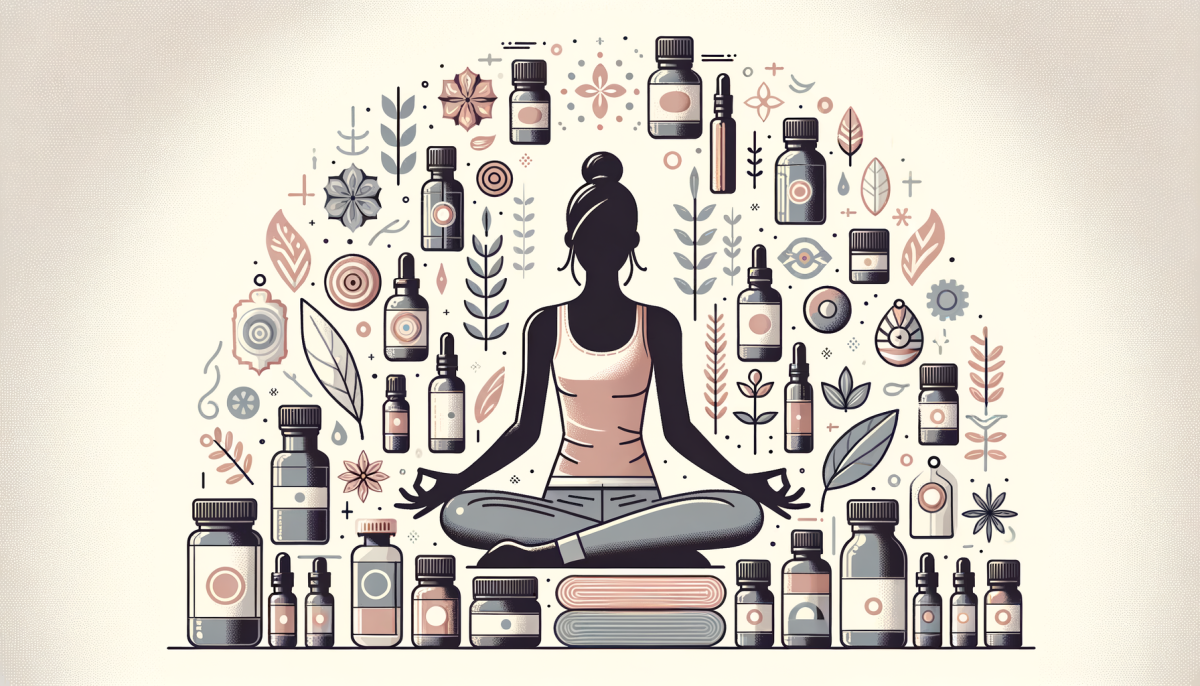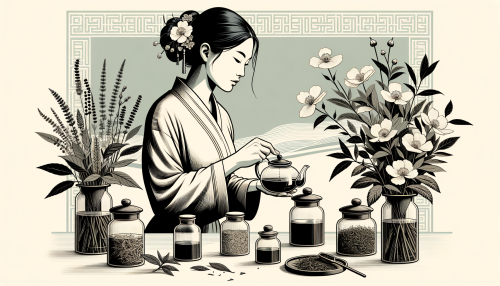Introduction
Immersing ourselves in the realm of holistic health, we find ourselves drawn to the potent influence of essential oils. These aromatic elixirs, distilled from the very essence of nature, play a pivotal role in the holistic approach to wellbeing. Their profound impact on our physical, emotional, and spiritual health is a testament to their inherent power. The symphony of scents they offer not only tantalizes our olfactory senses but also orchestrates a harmonious balance within our bodies. This article aims to delve into the intricate role these botanical extracts play in holistic health, shedding light on their multifaceted benefits and the science that underpins their efficacy.
Essential Oils Basics

Essential oils, the lifeblood of plants, are the concentrated essences extracted from the roots, leaves, seeds, or blossoms of plants. These oils are not only aromatic but also possess potent therapeutic properties. They are the cornerstone of aromatherapy, a branch of alternative medicine that harnesses the healing power of plant compounds to promote holistic health and well-being.
The extraction process of these oils is a meticulous one, often involving steam distillation or cold pressing. The result is a highly concentrated substance that encapsulates the plant’s therapeutic properties. It’s important to note that these oils are potent and should be used with caution. Dilution with a carrier oil, such as jojoba or almond oil, is often recommended before topical application to prevent skin irritation.
The therapeutic benefits of essential oils are vast and varied. They can be used to alleviate a range of ailments, from stress and anxiety to inflammation and pain. For instance, lavender oil is renowned for its calming properties and is often used to promote sleep and reduce anxiety. On the other hand, peppermint oil is known for its invigorating effects and can help alleviate headaches and digestive issues.
Ingesting essential oils is a topic of debate among health professionals. While some oils are safe for consumption in small amounts, others can be toxic if ingested. Therefore, it’s crucial to consult with a healthcare provider or a certified aromatherapist before ingesting any essential oil. In conclusion, essential oils play a pivotal role in holistic health, offering a natural and effective way to support physical and emotional well-being.
Therapeutic Benefits
Essential oils, the quintessence of plants, have been employed for centuries as a cornerstone of holistic health. Their therapeutic benefits are manifold, spanning from physical wellness to emotional stability. The oils, extracted from various parts of plants, are imbued with potent compounds that interact with the human body in unique ways, offering a plethora of health benefits.
The physical benefits of essential oils are as diverse as the plants they are derived from. For instance, lavender oil, a floral elixir, is renowned for its calming properties, often used to alleviate insomnia and reduce anxiety. Peppermint oil, with its invigorating aroma, is known to enhance digestion and relieve headaches. Eucalyptus oil, a potent respiratory aid, is frequently used to clear nasal congestion and soothe coughs. These oils, when used appropriately, can serve as natural alternatives to conventional medicine, reducing the reliance on synthetic drugs and their potential side effects.
On the emotional front, essential oils can be powerful mood enhancers. Citrus oils like lemon and orange are known to uplift the spirit, combating feelings of depression and anxiety. Rosemary oil, with its distinctive scent, is believed to boost memory and concentration, making it a popular choice among students and professionals. The olfactory system, directly linked to the emotional center of the brain, is profoundly affected by the aromatic compounds in these oils, leading to improved mood and emotional well-being.
In addition to their physical and emotional benefits, essential oils also play a significant role in skincare. Tea tree oil, for example, is a popular choice for treating acne due to its antimicrobial properties. Similarly, frankincense oil is revered for its anti-aging effects, helping to reduce wrinkles and improve skin tone. By integrating essential oils into daily skincare routines, one can harness their therapeutic properties for healthier, more radiant skin.
In conclusion, the therapeutic benefits of essential oils are vast and varied, offering natural solutions for physical health, emotional well-being, and skincare. As more research is conducted, the potential of these plant essences continues to unfold, solidifying their place in the realm of holistic health.
Application Methods
Essential oils, the lifeblood of plants, find their way into our lives through a variety of application methods, each with its unique benefits and considerations. The first and perhaps most common method is through topical application. This involves applying the oil directly to the skin, either undiluted or mixed with a carrier oil such as coconut or jojoba oil. The skin, our largest organ, absorbs the oil, allowing it to enter the bloodstream and circulate throughout the body. This method is particularly effective for addressing localized issues, such as muscle aches or skin conditions.
However, care must be taken when applying essential oils topically. Some oils can cause skin irritation or allergic reactions, particularly in individuals with sensitive skin. Therefore, it is always recommended to perform a patch test before applying an oil to a large area of the skin. Furthermore, some oils, such as citrus oils, can increase the skin’s sensitivity to sunlight, leading to burns or discoloration.
Aromatherapy, or inhalation, is another popular method of using essential oils. This can be achieved through the use of diffusers, steam inhalation, or simply by adding a few drops of oil to a tissue or cotton ball. When inhaled, the aromatic compounds in the oils interact with the olfactory system, influencing the limbic system, the part of the brain responsible for emotions and memory. This method is often used for its calming and mood-enhancing effects.
Lastly, internal consumption is a method of application that should be approached with caution. While some oils are safe to ingest in small amounts, others can be toxic. It is crucial to consult with a healthcare professional before ingesting any essential oil. This method is typically reserved for specific health concerns and should not be used as a daily wellness routine.
In conclusion, the method of application plays a significant role in how essential oils affect our health. Whether applied topically, inhaled, or ingested, these potent plant extracts have the potential to support our wellbeing in a myriad of ways. However, as with any health practice, it is important to use them responsibly and under the guidance of a healthcare professional.
Conclusion
In the final analysis, the role of essential oils in holistic health is both profound and multifaceted. These aromatic elixirs, distilled from nature’s bounty, serve as potent catalysts in the journey towards comprehensive well-being. Their therapeutic properties, ranging from antimicrobial to mood-enhancing, underscore their versatility in addressing a spectrum of health concerns. Moreover, their integration into daily routines can foster a harmonious balance between mind, body, and spirit, epitomizing the essence of holistic health. However, it is crucial to remember that while essential oils can complement traditional medical treatments, they are not a substitute for professional healthcare. Therefore, their use should always be guided by informed decisions and, where necessary, professional advice.





